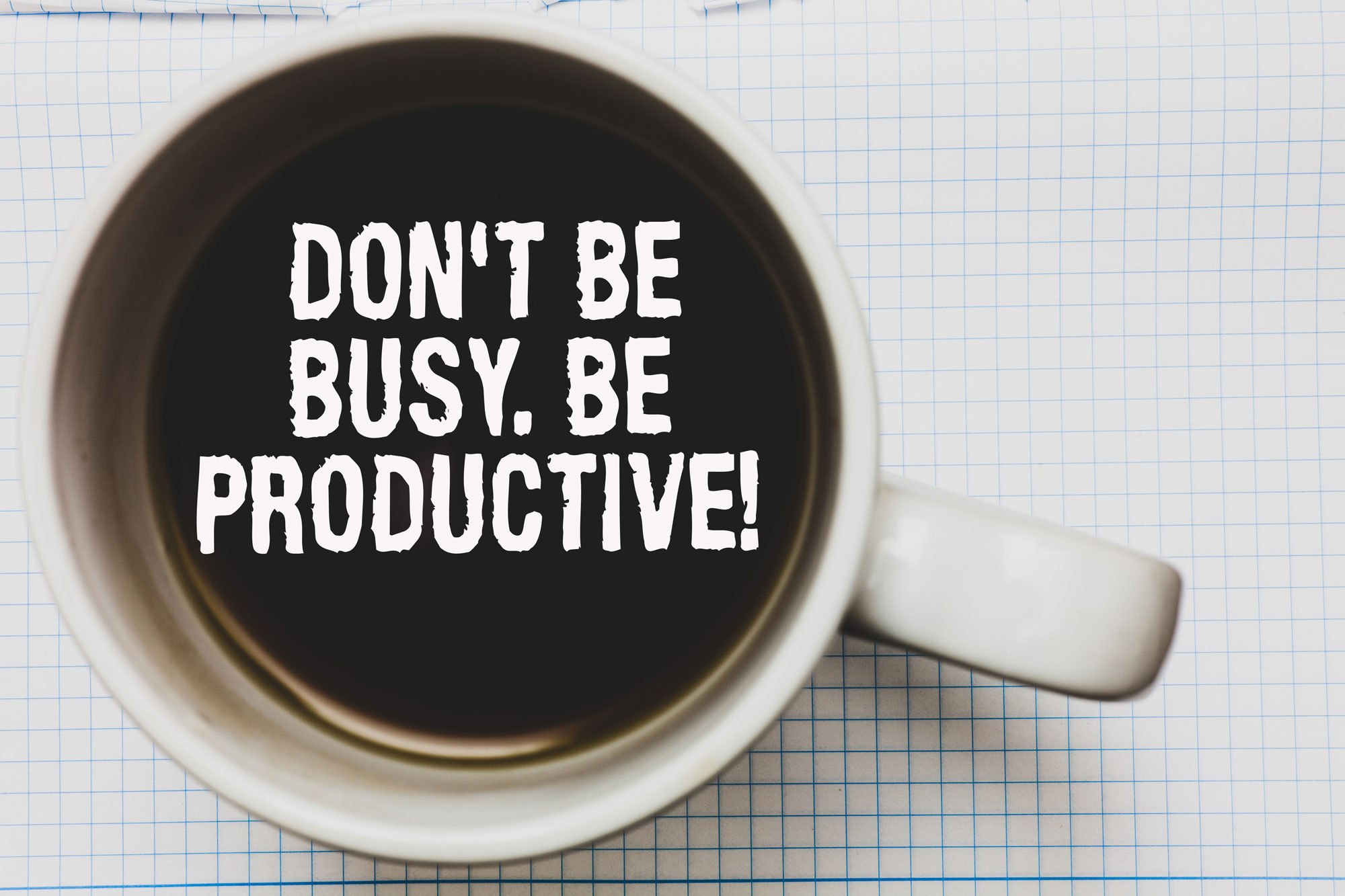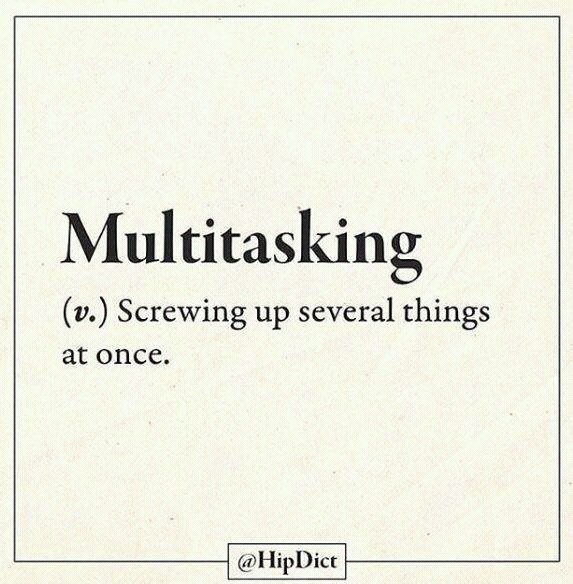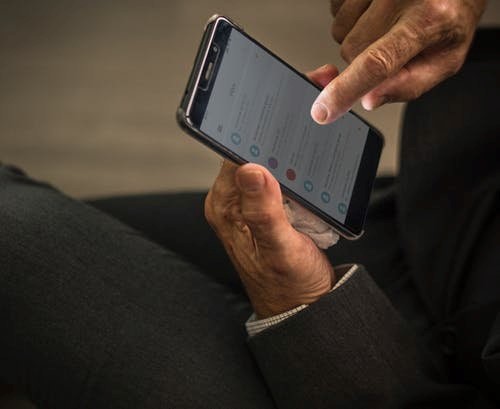By Kenneth Kwan
This article first appeared in Deep Impact Pte Ltd website.

71 Tips To Improve Your Productivity
As a results-oriented individual, I’m always experimenting different ways to make myself more productive and efficient. It is my desire not to always put in more hours at work but rather, seek to do more with the same amount of time that I have.
Here are the 71 no-frills ways of improving your productivity right now!
HABITS
1. Hermit Time. You need to allocate a time slot where you will totally be undisturbed and being incommunicable (just like a hermit).
2. Momentum is key! Remember that there is always momentum when you work. It is very important to ensure that the momentum is not disrupted by other things, e.g. phone calls, checking emails, people stopping by to talk to you and etc. Once the momentum is lost, it will take some time to get it back.
3. I-can’t-see-you. Turn off anything that distracts, i.e. Notifications to social media or WhatsApp, TV, newspapers and etc. I switched off WhatsApp notifications on my phone and my life has been back in order again.
4. Stop multi-tasking. Scientists and studies have shown that it drops your IQ, makes you impatient and reduce your concentration ability. Doing one thing at a time also makes you focused to accomplish a task quickly and to high standards.
5. Stop being a perfectionist. You can take whole day to ensure that small little things are in order or the alignment is consistent, but is that effective?
6. Say “NO”. Taking more things doesn’t make you more focused or effective if you are already struggling with the amount of things to do. There are always more things to do, but it should not be done at the expense of the main purpose of your job. Learning to say NO was one of the toughest lessons for me.
7. Mini Performance Reviews. Conduct short performance reviews about what you have done at the end of each day and ask how you would have done it better.
8. Maximising “commuting time”. Whilst travelling, can you listen to a CD or MP3s to educate yourself? If you travel 40 minutes each way (assuming 22 work days a month), you would have used 352 hours in a year to gain additional knowledge.
9. Creating Activities is not the same as Being Effective. Remember that activity does not mean accomplishment. You can be doing a lot of things and running around in circles. Strive to be effective first before being efficient.
10. Effectiveness Percentage. Calculate your Efficiency Percentage = [ (Time doing Real Work) / (Time spent at work) ] x 100%. "Real Work" is the amount of time you actually spend doing real work, while "work" is the office hours you put in. You will be wise to improve efficiency percentage by maximising your time and not adding more hours.
11. Invest in yourself. Read, attend courses or seminars that will make you think faster, make better decisions and improve your gut feel for things.
12. Avoid information overload. Today’s society tends to give us too much information that is not timely or relevant. Unsubscribe yourself from newsletters or reduce reading newspaper content. Anything that you are not reading for more than three months should tell you to unsubscribe from it. You can always resubscribe if you need.
13. Schedule Pit Stops. Even a high performance car in the F1 needs to enter a pit stop to refuel and change tires. They do it so that they will continue running at an optimum speed. Schedule time every week to reflect and strategise for the week ahead.
14. More breaks. If you feel that you are not productive during work, schedule a “10 minute break” and set an alarm for it. This helps your mind to relax and reduces fatigue.
15. Get fit. If your fitness level is low, your productivity level will be low as well.
16. Institute rituals. There are rituals that you did before that can help you be more productive. Ask two questions: “When was a day that you felt that you were extremely productive? What did you do that day?” These will give you clues to what you should be doing more.
17. Reflect on what works. Always be curious when things succeed or works well at work. This gives clues to what you should be doing more and you need to think how to systemise it so that it can occur more often.
18. Housekeeping. Take 5-10 minutes at the end of the day to clean up your working space. Psychology has shown that less clutter means less stress.

EMAILS
19. Stop excessive emailing checking: Check your emails only twice or at maximum three times a day. Excessive checking of emails tends to make you waste time. Some experts also advocate that you only check them in the afternoon and save your mornings for important work.
20. Act on all emails immediately: Do it by deleting or replying to them. Do not try to read an email first and then decide to reply later. This makes you waste time in re-reading emails.
21. Short and sharp. Reduce the length of emails so that other people do not find it too daunting to read and you will also save time in the process of crafting it as well.
22. Boilerplate. Use them for frequent questions or repetitive proposals. Boilerplates are essentially templates to typical questions or proposals without having to constantly reinventing the wheel.
23. Craft subject lines clearly. Since most people decide to open emails based on subject lines, it is important that you need to write relevant and descriptive subject lines.
24. Number your points. It helps to ease reading and guide others to reply according to your points. People tend to miss information if paragraphs are too long.
25. Flag ‘em. Flag your emails with different colour so that you know the priority level. I personally use “red” for important emails that I need to monitor everyday, “green” for my colleagues to follow up on and etc.
26. Don’t cc the world. Don't carbon copy people who doesn’t need to know or has got no say in it. If you really want your boss to be informed on what you have been working on, schedule short update meetings and not plague everyone else to read your emails.

COMMUNICATION
27. Quick Chat. Strive for the quickest and most effective way of communication. A two-minute phone call can deliver the better results than you making a lengthy reply through emails.
28. Clarity of speech. Be clear on your thoughts and purpose for every conversation. Most people don’t communicate well because they do not know what they want to achieve from every conversation. Communication is considered effective only when the recipient receives your intended meaning.
29. Update. If you have achieved something for the team or yourself, always give short updates to them. This helps others know that things are progressing and improves morale.
MEETINGS
30. Do I need to be there? Always ask if you really need to attend the meeting before hand. Some meetings are just for information and you can just read the minutes after the meeting.
31. Agenda-everything. Ensure there is an agenda in all meetings. This is to make meetings purposeful and clear. It is my personal rule to only attend meetings if there is an agenda.
32. Time Limit. Decide that you will end the meeting at an appointed time. This helps reduce unnecessary conversations and only things that will matter.
33. Homework. Before you attend any meeting, be sure to read through the minutes and decide your position. This avoids rash or ignorant decision making.
34. Focus on small steps. If you are overwhelmed too many things or can’t reach a consensus, ask: “What is a small step we need to take to improve (insert situation)?” This creates forward momentum. This is one of our signature programs.
35. No problem. Avoid being focused on problems by not dwelling on them. Rather than ask “What’s the problem?”, ask “What do we want instead of the problem?” Once you have details, starting looking for what are the ways to get what you want.

WORK ENVIRONMENT
36. Conducive environment. Maintain a work environment that encourages you to work. Distractions from people or a messy table might affect you. Think through about what items need to be close/far from you to encourage you to work better.
37. Adequate lighting. Ensure that there is enough lighting to avoid eyestrains.
38. Good ergonomics. Ergonomics is defined as the science of measurement and a person’s relationship to it. You should have good posture in everything you use. This includes desk, height of computer, distance of the computer from your eyes, your feet resting comfortably flat on the floor and etc.
39. Within reach. Things that you use everyday should be within an arm’s reach. Unless it is the expensive printer that has to be shared.
40. Get screened. If you use 2 computer screens or a really large one, it helps you see more at a glance without you switching tabs.
41. Tune down. If your workplace is noisy, do consider wearing eye buds or headphones. It tends to reduce noise and makes people not want to talk to you when you are working.

OUTSOURCING or DELEGATION?
42. Value Generation. Consider outsourcing or delegating part of your work out if you feel that it does not bring generate the most value for your company. Can part timers or personal assistants help? Anything repetitive can usually be outsourced easily.
43. Need a freelancer? You can outsource your work (almost anything can be done there) to professionals from other countries at a reasonable price. Try upwork.com, freelancer.com or fiverr.com.
44. Hire good people and get out of their way. Be clear on their job descriptions and how they add value to the company. Coach them to succeed and empower them to make decisions so that they can improve your company’s effectiveness.
PERSONAL MOTIVATION
45. Hang out. Say goodbye to energy vampires to your life. Stick with people who inspire you to take action to improve your life. I’m sure that if you were to hang around with Bill Gates, Warren Buffet or Elim Chew, you will want to do something significant with your life!
46. Mantra Mantra. Recite “Do it now” again and again until you are too tired to hear another time and get it done.
47. Get a personal mentor or coach. They will help you identify your blind spots and coach you to overcome them and focus on what you do best.
48. Reward yourself. Give yourself a reward when you achieve certain milestones in your work. This will give you incentive to work harder and push on.
49. Practice makes permanence. The more time you spend in doing something, the better you become. This reduces the amount of time to do it again. Being good at something also pays well too!
50. Declare to the world: Announce your intentions of what you want to achieve to the world (or on social media). This forces you to do what you have said or risk losing face. I told my friends on social media that I will complete my first manuscript of my book: Small Steps To Big Changes in 60 days and it happened! Social pressure does help you succeed.
51. What needs to be different? If someone constantly focuses on what is not working, or has a hard time getting out of his complaining mode, ask “What needs to be different?”
52. The power of small. If you keep winning small, you will usually feel motivated. Small wins leads to increased self-belief and will lead you to bigger things. Always start small first.

COMPUTER TECHNIQUES
53. Better software skills. Consider upgrading your software skills and learn shortcuts and hot-keys to finish a task faster.
54. WPM. Improve your typing speed (measured in Words Per Minute). Secretaries to learn how to touch type (which means typing without looking at keys) and tend to be faster than anyone else. You can type faster by memorising the keyboard and using all your fingers.
55. Use updated tools. Ensure that the software and hardware tools are all updated so that they can function at an optimum speed. A computer with a good processing speed and internet connection speed is essential to ensure that it does not impede your work.
DAILY ORGANISATION
56. Plan ahead. Create a task list of things to do by the morning. Put check boxes next to them so that it will encourage you to complete them.
57. Finish by 12pm. Do the important tasks before lunch time. This helps you achieve what is important and not get caught in things that aren’t.
58. Schedule dailies. If you set aside time on a task or habit, you will tend to finish the long waited book, lose weight or learn an entirely new sport.
59. Schedule appointments. If you want something done and know that you do not have the constant motivation to make it happen, schedule appointments with friends to do it together. Friends can encourage you and use positive peer pressure to push you on.
60. Spell Deadlines. Give yourself deadlines to everything you do. Remember that deadlines are spelled as deadlines, not datelines. Cross the line and you are dead.
61. Create checklists for consistency. Create checklists so that you can create consistent experiences or logistics. In our company, we have checklists for programs, logistic items, even what to do to follow up with clients. This creates a consistent experience for our clients and helps us succeed consistently.
62. Break-up. Break up huge tasks into smaller sizes. This prevents procrastination and getting lost in the immensity of a task. Finishing small bite sizes of work tends to be much easier to manage.
63. Peg time limits to each task. This prevents you from using too much time to finish a task.
64. Categorise and label. Categorise your items and label the folders, boxes or drawers. It helps you to remember where you kept them and prevent you from looking around for lost documents or items. It is also easy for you to discard them accordingly once it has past its expiry date for personal or work uses. Try to be as specific as possible (e.g. Work Receipts and Invoices 2019) and not label “General Folder”. As a general rule, we only keep last year’s folders for our easy reference, the rest are stored away.
65. Prioritize your work. What is urgent may not always be important.
66. Ignore doing, if possible. Before you do anything, ask yourself if you really need to do it? Sometimes the consequences of not doing anything may be acceptable. There are some things that do not even need to be done.
67. P-Cycle. Decide when your most productive time is. There are personal cycles of productivity and you should schedule your most important tasks at that time.
68. Batch your work. If you batch your work into chunks, it might be easier to manage. Think of all the functions of your job scope and complete it a chunk at a time, e.g. make phone calls, run errands or clear administrative work.
69. Be like a good chef. Before a chef cooks, he has all the ingredients laid out before him already. Gather all the resources and tools before you start to work.
70. Cross-pollination. Bring good ideas or best practices from other industries and ask if they can be applied to yours as well.
71. Don’t wait for perfect conditions. When you take immediate actions, you create progression and that gives you feedback to plan the next step better. When you wait, nothing ever happens. Start now.
About the writer:
Kenneth Kwan is an Author and Global Leadership Speaker in Deep Impact. He specialises in helping leaders increase performance and deliver results.
Image credit: Pexels